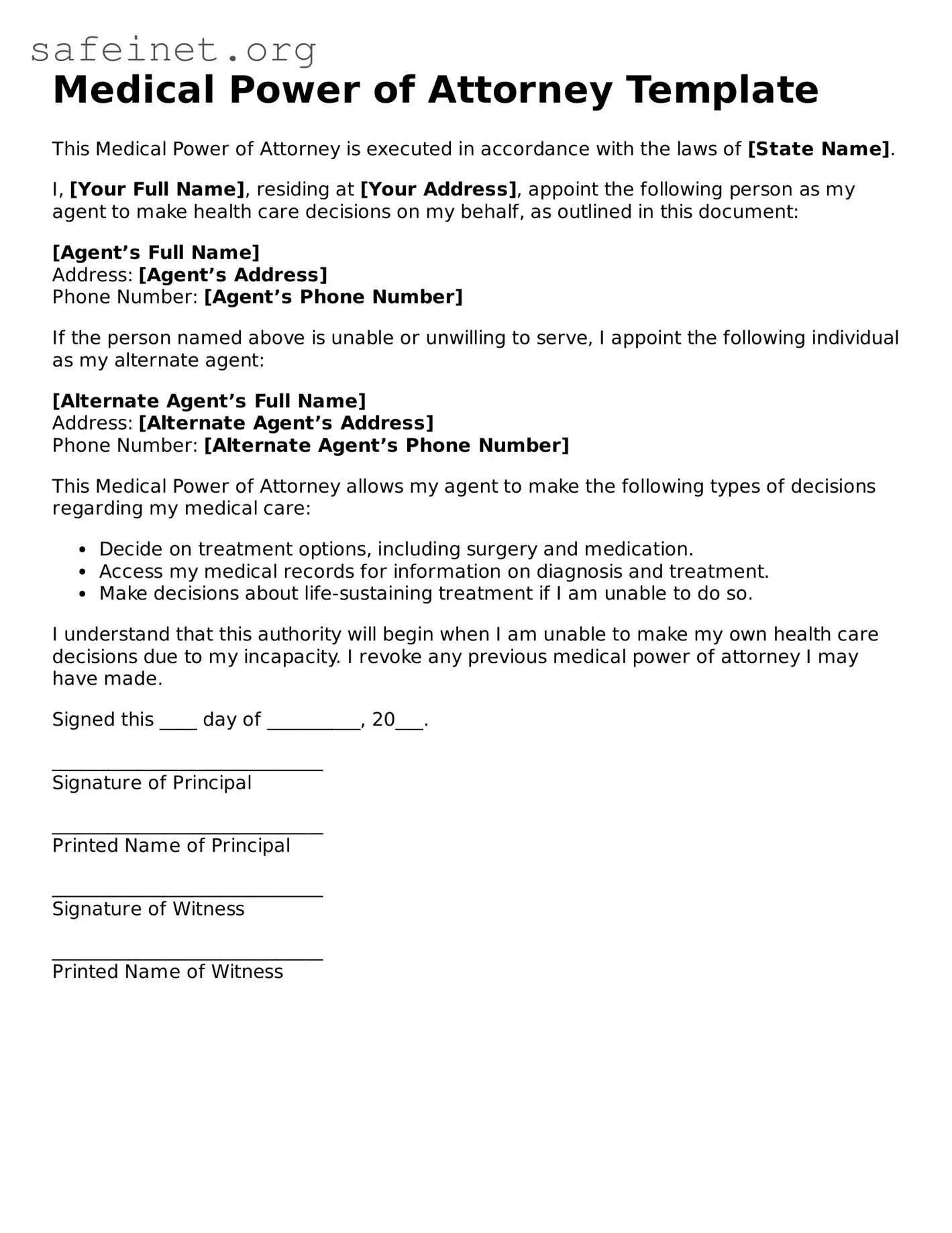What is a Medical Power of Attorney?
A Medical Power of Attorney (MPOA) is a legal document that allows an individual (the "principal") to designate someone else (the "agent" or "attorney-in-fact") to make medical decisions on their behalf if they are unable to do so. This ensures that the individual's healthcare preferences are respected even when they are incapacitated.
Why should I have a Medical Power of Attorney?
Having an MPOA enables you to choose someone you trust to make healthcare decisions for you during critical times. It provides peace of mind, knowing that your wishes regarding medical treatment, end-of-life care, and other healthcare matters will be honored. It also alleviates the burden on family members who might otherwise have to make stressful decisions without guidance.
Who can I designate as my agent?
You can designate almost anyone as your agent, such as a family member, friend, or trusted advisor. However, it is vital to choose someone who understands your values and wishes related to healthcare. It is also recommended to discuss your decision with this person beforehand, ensuring they are willing to accept the responsibility.
Does a Medical Power of Attorney expire?
An MPOA does not automatically expire, but it can become invalid if you revoke it, if a court decides you are no longer capable of making decisions, or if certain conditions are not met in your state. It's essential to review your MPOA periodically, especially after significant life events such as marriage, divorce, or the death of your appointed agent.
What if I don’t have a Medical Power of Attorney?
If you do not have a Medical Power of Attorney and become incapacitated, medical professionals may be required to rely on family members to make decisions on your behalf. This can sometimes lead to disagreements or confusion about what your wishes were. Having an MPOA helps prevent this situation and ensures clarity in decision-making.
How do I create a Medical Power of Attorney?
To create a Medical Power of Attorney, you typically need to fill out a specific form provided by your state or any legal resource. Ensure that it includes your personal details, the agent's information, and your healthcare preferences. After signing, it is advisable to have it notarized or witnessed according to your state's requirements to ensure its validity.
Can I change my Medical Power of Attorney once it’s established?
Yes, you can change your MPOA at any time as long as you are mentally competent. This includes revoking the existing MPOA and creating a new one, or simply updating it to appoint a different agent or clarify your wishes. Always communicate any changes to your appointed agent and keep a copy of the updated document for your records.
Is a Medical Power of Attorney the same as an advance directive?
While they are related, a Medical Power of Attorney and an advance directive are not the same. An advance directive outlines specific healthcare wishes, such as preferences for life-sustaining treatment. An MPOA appoints someone to make those decisions on your behalf, should you be unable to communicate. Both documents work together to ensure your healthcare decisions are respected.
Do I need a lawyer to complete a Medical Power of Attorney?
A lawyer is not required to complete a Medical Power of Attorney, as many states offer forms that can be filled out without legal assistance. However, consulting with a lawyer can provide additional peace of mind and ensure that your MPOA meets all legal requirements specific to your state.
